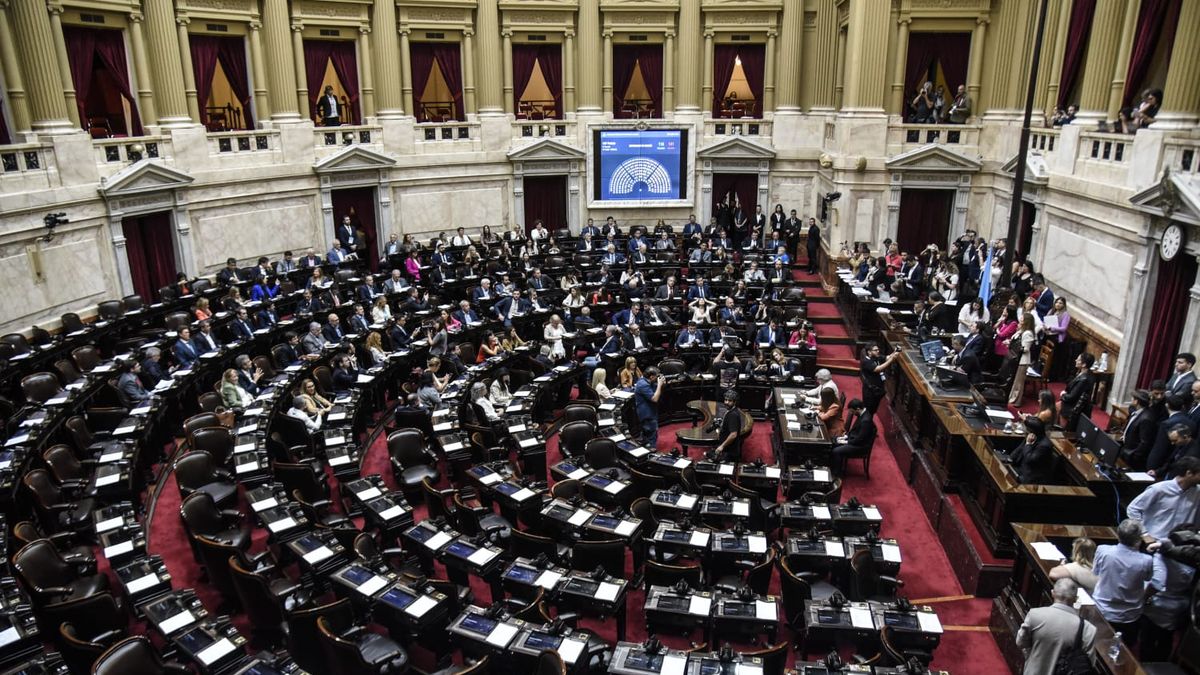Javier Milei It will assign and reassign items from the Budget in 2025 outside Congress and by signature alone, by decree. The discretionary use of public resources will be extended for the first time in history for two consecutive years taking into account that the President has not approved the so-called law of laws since he assumed power in 2023.
This is an accumulation of power without legislative control that a sector of the opposition will try to remedy next year by limiting by law the power of the National Executive Branch to reallocate items by decree. “The only way to limit these excesses outside the law is with another law that prevents Milei from resigning budget items by decree. We must return to Congress its budgetary powers,” explained Germán Martínez, head of the Unión por la Patria bloc. in the Chamber of Deputies.
Criticism in Congress
“The government violates the spirit of article 27 of the financial administration law, which enables the President to extend and reallocate items to avoid a paralysis of management. But in this case it is the other way around, it is Milei who decides not to have a Budget and paralyzes to Congress,” warned the national representative for Santa Fe before the consultation of Scope.
In this context, and at the end of the year, With Congress in legislative recess in principle until March 1, Peronism began to design a legislative strategy to prevent Milei from continuing to govern by decree in 2025. To this end, they will try to join forces with the aim of modifying the so-called financial administration law No. 24,156 to avoid future automatic extensions of the Budget and force the Executive to go through Congress when defining the income and expense scheme of the national government through of Congress without the power to define extensions by decree.
“The President violates the spirit of the financial administration law that was drafted for exceptional purposes to guarantee that the Executive is not left without a Budget. But what happens is the opposite, it is Milei who wants there to be no Budget,” adds Martínez . It is that with the objective of not producing a paralysis of the functioning of the National State, Law No. 24,156, in its article 27 establishes that in the absence of a Budget law, the one that was in force in the previous year will govern, empowering the Power Executive to make the essential adjustments to guarantee the continuity and efficiency of the services provided by the State and to comply with debt services and international commitments.
No Budget 2025
Although since the enactment of Law No. 24,156, in September 1992, a budget year began on five other occasions without an approved Budget law, the situation that arises in 2025 constitutes a novelty, since it is the first time that there is no Budget Law in two consecutive years.
“This circumstance constitutes a setback in the institutionality of the National Public Sector and reflects the impossibility of reaching the minimum agreements necessary to have the most important standard for the annual management of government. However, this setback is not limited to a question of forms, since it also has implications in various orders, given that the Budget, apart from being the annual financial expression of public policies, and as such includes the maximum spending authorizations and the calculation of the resources to meet them, also contemplates the levels performance in physical terms, defines the financial result goal, authorizes the issuance of new public debt, includes the infrastructure works plan, contemplates provisions that affect different economic actors in the private sector, establishes the financial resources that the provinces, municipalities and public companies will receive as transfers, contains guidelines for the evolution of public salaries and retirements and pensions, incorporates definitions of the public employment policy and contemplates functional aspects of the National State, among other issues,” the Association’s board of directors also warned. Argentina Budget and Financial Administration (ASAP).
Source: Ambito




